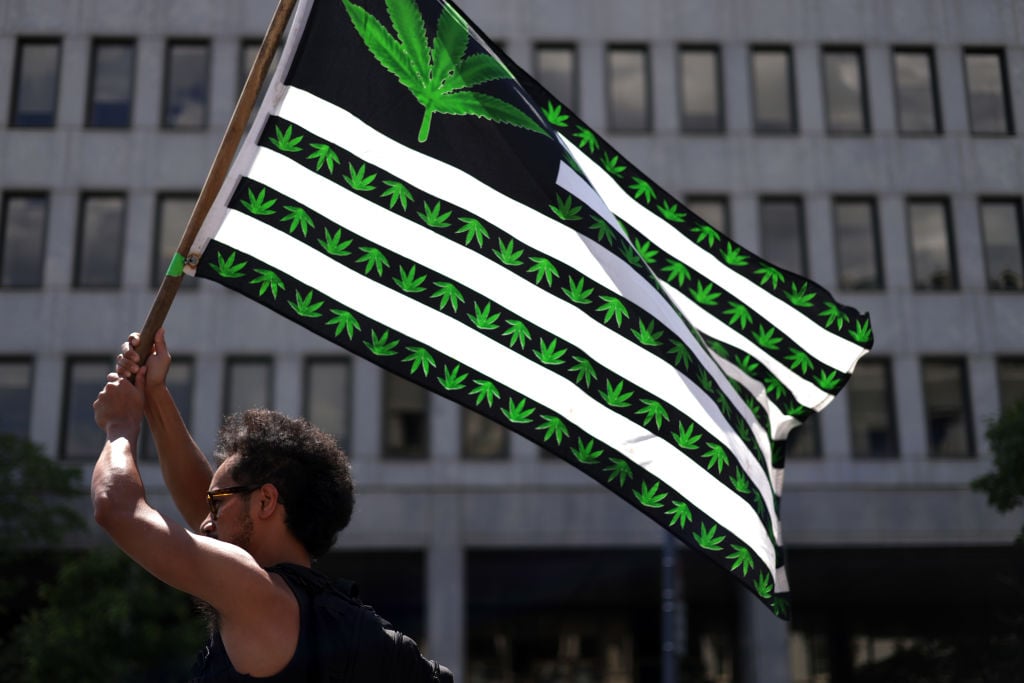Update: 4:35 PM: The bill failed. The original post follows.
DC’s cannabis “gifting” services are a symptom of the city’s second-class status in the US–its residents voted in 2014 to legalize marijuana, but Congress’s continuing ban on legal recreational sales in the District essentially created a gray market where recreational users must purchase items and receive a “gift” of a cannabis product. On Tuesday the DC Council is poised to consider emergency legislation (a not uncommon legislative tactic in the District that circumvents Congressional review) that would bolster the fortunes of medical marijuana businesses and crack down on gifting services.
The bill, proposed by Council Chairman Phil Mendelson, aims to alleviate complaints by medical dispensaries that “I-71” businesses—their name derives from Initiative 71, the 2014 ballot measure that legalized cannabis—don’t face the same regulatory regimen they do, and as a result enjoy an unfair advantage. DC could close unregistered marijuana businesses for 96 hours and fine them and their landlords. At the same time, anyone who wanted a medical cannabis card would be able to “self-certify” their need and purchase from medical dispensaries.
Anaïs Hayes is the COO and co-founder of District Derp, an I-71 business that has a team of ten people working either full or part-time. Moving all trade to the medical dispensaries would probably lead to price hikes, she says. Only seven medical dispensaries are currently licensed to operate in the District, and while the legislation aims to increase that number, the current market would be immediately disrupted. “No matter what happens, you’re looking at least a couple months” before new dispensaries could begin to operate, she says. “I don’t see how the supply meets the demand in light of this.” More immediately, says Christopher Licata, District Derp’s CEO and other co-founder, “When this legislation becomes effective, we’ll have to close the doors of District Derp.”
The I-71 Committee is a trade group that represents about a half-dozen gifting businesses. Its members are all for making it easier to access medical marijuana and would also welcome regulation, says Grace Reeder, its executive director, but this legislation “will have a horrible impact” on I-71 businesses, many of which she points out are run by Black or brown entrepreneurs. “It really moves our city backwards in terms of harming legacy operators,” Reeder says. It’s still unclear how the bill’s provisions would be enforced, she says: “I don’t know that they’ve thought this process through in its entirety.”
Several councilmembers expressed reservations about fast-tracking this legislation at a breakfast meeting Tuesday. If enough object, that could give the I-71 businesses some breathing room—many have encouraged their customers to call their councilmembers to express disapproval. This is Mendelson’s second attempt to pass such legislation, though, which suggests that even if I-71 businesses dodge a moving train today, another will be along soon. “We would really like more time to work with the council,” Reeder says.

















